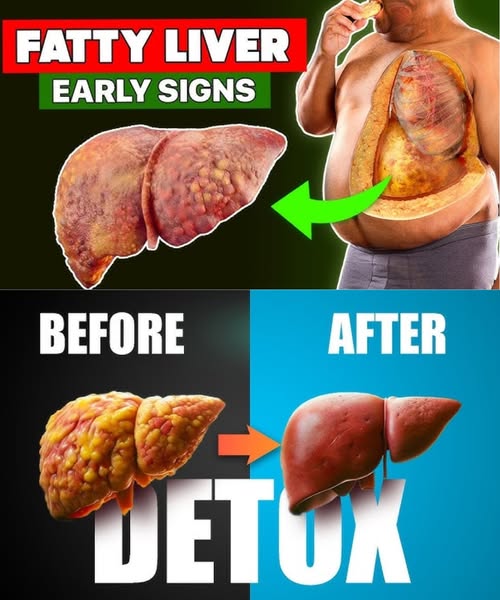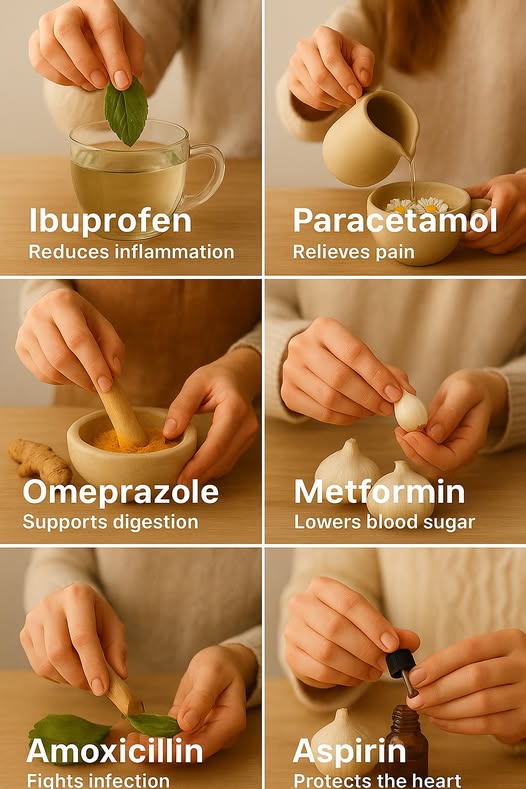Introduction:

Your liver works tirelessly, detoxifying your body, breaking down fats, and filtering your blood every single minute. Yet, most people have no idea when their liver is in danger—until it’s too late.
In fact, liver disease is known as a “silent killer” because symptoms often go unnoticed until severe damage has already occurred. According to the World Health Organization, more than 2 million deaths per year are attributed to liver-related conditions, many of which could have been prevented with early detection.
In this article, we’ll reveal 17 critical symptoms that could indicate your liver is struggling—or even failing. Recognizing these warning signs could save your life or someone you love. Plus, we’ll answer the most frequently asked questions about liver health and outline actionable strategies to support and protect this vital organ.
What Does the Liver Do and Why Is It So Important?
Your liver is your body’s primary filtration system, responsible for over 500 vital functions, including:
- Removing toxins from your bloodstream
- Regulating blood sugar levels
- Producing bile to digest fats
- Storing essential nutrients
- Breaking down alcohol and medications
Damage to the liver—whether from poor diet, alcohol abuse, infections, or environmental toxins—can disrupt all these functions, leading to chronic illnesses, organ failure, or even death.
🚨 17 Critical Symptoms Your Liver Could Be Dying
Here are the tell-tale signs your liver may be in trouble. If you experience two or more, it’s time to take action immediately:
1. Unexplained Fatigue
Extreme tiredness is often one of the first signs of liver dysfunction. The liver’s inefficiency causes a buildup of toxins in the blood, leading to mental and physical exhaustion.
2. Yellowing of the Skin and Eyes (Jaundice)
Jaundice occurs when your liver cannot process bilirubin, a waste product in your blood. This results in a yellow tint and is a major red flag for liver failure.
3. Persistent Nausea and Vomiting
Feeling constantly sick could mean your liver isn’t removing toxins properly, upsetting your digestive system.
4. Abdominal Pain or Swelling
Pain in the upper right abdomen may indicate an inflamed or enlarged liver. Bloating can also be a sign of ascites, a fluid buildup due to liver damage.
5. Dark Urine
A noticeable darkening of your urine may signal rising bilirubin levels in your system, a classic sign of liver stress.
6. Pale or Clay-Colored Stools
Bile helps give stool its brown color. Light or gray-colored stools could mean your liver is not producing enough bile.
7. Itchy Skin
Persistent itching without a clear cause may be due to bile products depositing in the skin—a warning of bile flow obstruction.
8. Easy Bruising and Bleeding
The liver produces proteins necessary for clotting. If you’re bruising easily or bleeding excessively, your liver could be failing.
9. Swollen Legs or Ankles (Edema)
This swelling happens when the liver loses its ability to produce enough albumin, a protein that prevents fluid from leaking out of blood vessels.
10. Brain Fog and Confusion
A damaged liver can’t filter toxins from your blood effectively, which may lead to hepatic encephalopathy, causing memory loss, confusion, and mood swings.
11. Loss of Appetite
A sudden lack of hunger—especially when paired with weight loss—can indicate your liver is not functioning correctly.
12. Chronic Bad Breath
Also known as foetor hepaticus, this is a sweet or musty odor caused by liver failure.
13. Hormonal Imbalances in Men
Liver damage can lead to estrogen buildup, causing gynecomastia (breast development) and loss of libido in men.
14. Frequent Nosebleeds
Impaired liver function can reduce platelet production, making you more prone to spontaneous bleeding.
15. Visible Blood Vessels Under Skin (Spider Angiomas)
These small, spider-like capillaries are common in liver disease and often appear on the face, chest, or shoulders.
16. Yellow Tongue or Coated Tongue
A yellow or thickly coated tongue can reflect a buildup of liver-related toxins or digestive disturbances.
17. Unexplained Weight Gain or Loss
Rapid changes in weight—especially paired with abdominal swelling—could be due to liver damage affecting fluid balance and metabolism.
❓ Frequently Asked Questions About Liver Health
Q: Can liver disease be reversed?
A: Yes, early-stage liver disease—especially fatty liver disease—can be reversed with lifestyle changes, diet, and medical treatment. However, cirrhosis and advanced scarring may be irreversible.
Q: How can I test if my liver is healthy?
A: Ask your doctor for a liver function test (LFT), which measures enzymes, proteins, and bilirubin levels. Imaging tests like ultrasounds or MRIs may also be used.
Q: What foods cleanse the liver naturally?
A: Foods rich in antioxidants and anti-inflammatory properties such as:
- Leafy greens (spinach, kale)
- Garlic
- Turmeric
- Beets
- Green tea
- Olive oil
These support liver detox and regeneration.
Q: Is alcohol the main cause of liver disease?
A: No. While alcoholic liver disease is common, non-alcoholic fatty liver disease (NAFLD) caused by obesity, poor diet, and metabolic disorders is more prevalent globally.
🛡️ How to Protect and Support Your Liver
If you’ve identified any of the above symptoms or simply want to strengthen your liver health, here are actionable steps you can take starting today:
✅ 1. Adopt a Liver-Friendly Diet
Avoid trans fats, excessive sugar, and processed foods. Embrace:
- Whole foods
- Omega-3 fatty acids
- Leafy vegetables
- Cruciferous veggies like broccoli and cauliflower
✅ 2. Hydrate Wisely
Drinking plenty of water supports the liver’s detoxification functions. Add lemon for an added antioxidant boost.
✅ 3. Limit Alcohol Intake
Stick to recommended guidelines (1 drink/day for women, 2 drinks/day for men) or consider eliminating alcohol completely for a liver reset.
✅ 4. Exercise Regularly
Even 30 minutes a day of moderate exercise can lower liver fat, reduce inflammation, and improve insulin sensitivity.
✅ 5. Avoid Toxins
Minimize exposure to pesticides, cleaning chemicals, and cigarette smoke. Use gloves and masks when handling toxins.
✅ 6. Monitor Medications
Some medications—especially acetaminophen (paracetamol)—can harm the liver when used excessively or incorrectly.
✅ 7. Get Vaccinated
Vaccines for Hepatitis A and B can protect you from viral liver infections.
📊 Liver Disease Statistics That May Shock You
- Over 25% of the global population is affected by non-alcoholic fatty liver disease (NAFLD)
- Liver disease is the 11th leading cause of death worldwide
- Hepatitis B and C infections cause more than 1 million deaths annually
- Nearly 75% of people with liver damage are unaware until symptoms become severe
🔍 SEO Keywords to Remember
To improve your search rankings, here are some relevant keywords embedded throughout this article:
- Liver disease symptoms
- Signs of liver failure
- Is my liver dying?
- Fatty liver signs
- Early signs of liver damage
- Natural liver cleanse
- Liver detox foods
- Liver function test
- How to protect your liver
- Best foods for liver health
These keywords enhance visibility for those searching for liver-related health solutions online.
💬 Real Story: How One Man Reversed Liver Damage Naturally
John, a 45-year-old software engineer, was diagnosed with fatty liver disease during a routine checkup. He had no symptoms—just some mild fatigue he brushed off as stress. After changing his diet, cutting alcohol, and walking daily, his liver function improved dramatically within 6 months. Today, his enzyme levels are back to normal—and his story is a reminder that early action saves lives.
Conclusion:
Your liver is your silent protector—working behind the scenes to keep you healthy. But when it’s in distress, it sends out urgent warning signals. If you recognize even a few of these 17 critical symptoms, do not ignore them.
Liver disease doesn’t always come with loud alarms. But with awareness, timely diagnosis, and lifestyle changes, you can avoid irreversible damage and reclaim your health.
Don’t wait for the symptoms to get worse. Act now. Protect your liver—protect your life.


